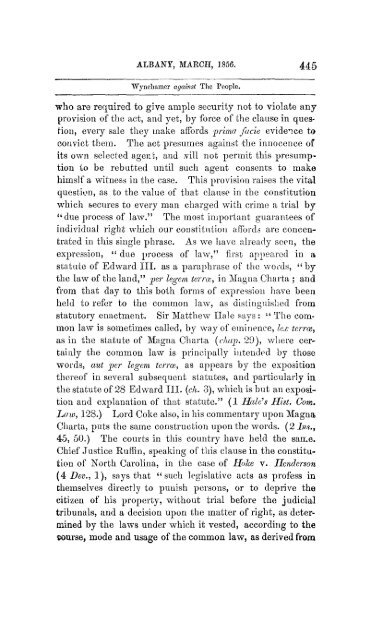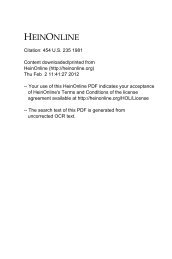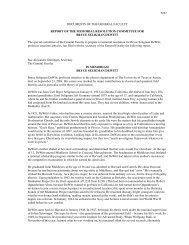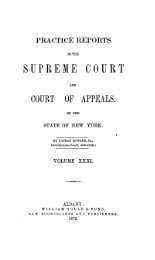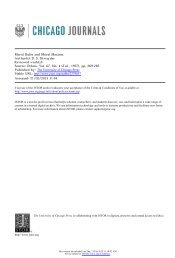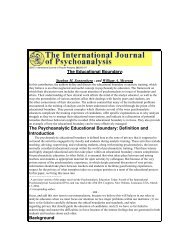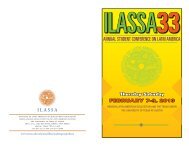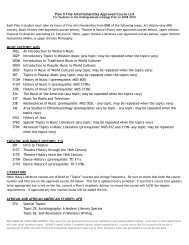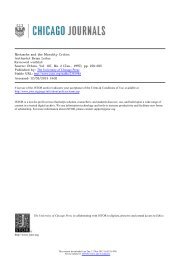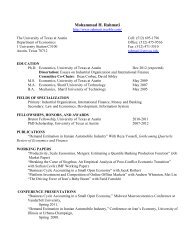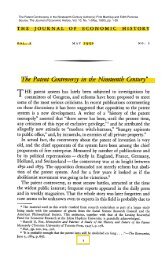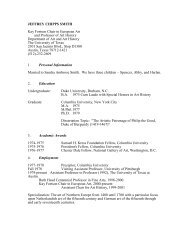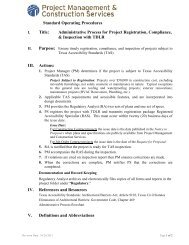Wynehamer v People.pdf - The University of Texas at Austin
Wynehamer v People.pdf - The University of Texas at Austin
Wynehamer v People.pdf - The University of Texas at Austin
You also want an ePaper? Increase the reach of your titles
YUMPU automatically turns print PDFs into web optimized ePapers that Google loves.
ALBANY, MARCH, 1856.445Wyneliamer against <strong>The</strong> <strong>People</strong>.who are required to give ample security not to viol<strong>at</strong>e anyprovision <strong>of</strong> the act, and yet, by force <strong>of</strong> the clause in question,every sale they make affords prima facie evideTce toconvict them. <strong>The</strong> act presumes against the innocence <strong>of</strong>its own selected agent, and vill not permit this presumptionto be rebutted until such agent consents to makehimslf a witness in the case. This provision raises the vitalquestion, as to the value <strong>of</strong> th<strong>at</strong> clause in the constitutionwhich secures to every man charged with crime a trial by"due process <strong>of</strong> law." <strong>The</strong> most important guarantees <strong>of</strong>individual right which our constitution affords are concentr<strong>at</strong>edin this single phrase. As we have already seen, theexpression, " due process <strong>of</strong> law," first appeared in ast<strong>at</strong>ute <strong>of</strong> Edward III. as a paraphrase <strong>of</strong> the words, " bythe law <strong>of</strong> the land," per legem terra;, in Magna Charta ; andfrom th<strong>at</strong> day to this both forms <strong>of</strong> expression have beenheld to refer to the common law, as distinguished fromst<strong>at</strong>utory enactment. Sir M<strong>at</strong>thew Hale says : " <strong>The</strong> commonlaw is sometimes called, by way <strong>of</strong> eminence, lex terree,as in the st<strong>at</strong>ute <strong>of</strong> Magna Charta {chap. 29), where certainlythe common law is principally intended by thosewords, aut per legem terrw, as appears by the expositionthere<strong>of</strong> in several subsequent st<strong>at</strong>utes, and particularly inthe st<strong>at</strong>ute <strong>of</strong> 28 Edward III. (ch. 3), which is but an expositionand explan<strong>at</strong>ion <strong>of</strong> th<strong>at</strong> st<strong>at</strong>ute." (1 Hale's Hist. Com.Law, 128.) Lord Coke also, in his commentary upon MagnaCharta, puts the same construction upon the words. (2 lw.s.,45, 50.) <strong>The</strong> courts in this country have held the same.Chief Justice Ruffin, speaking <strong>of</strong> this clause in the constitution<strong>of</strong> North Carolina, in the case <strong>of</strong> Hoke v. Henderson(4 Dev., 1), says th<strong>at</strong> "such legisl<strong>at</strong>ive acts as pr<strong>of</strong>ess inthemselves directly to puuish persons, or to deprive thecitizen <strong>of</strong> his property, without trial before the judicialtribunals, and a decision upon the m<strong>at</strong>ter <strong>of</strong> right, as determinedby the laws under which it vested, according to thesourse, mode and usage <strong>of</strong> the common law, as derived from


